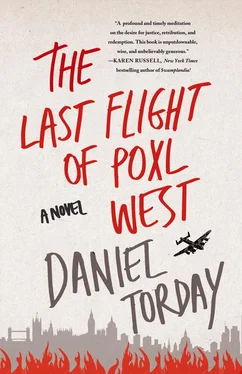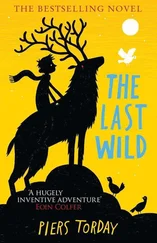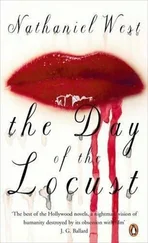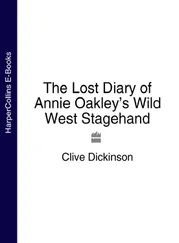“Got those fuckers!” Gallsworthy called.
Ford admonished him to keep off the phones unless there was imminent news — I thought to argue that my friend the front gunner’s comment was news, and imminent at that, but now I was caught in reverie at how we would soon enough be plummeting toward German soil just as that Me110 had. I rode the rest of the way to our target in a state of tense readiness, having for the first time been hit by Luftwaffe fire. In my months of desire to join the RAF, I’d thought of nothing but the chance to kill Nazis who had sent my parents to their deaths, who had dropped the bomb that had killed Glynnis, and the one I felt must have killed Françoise. But there was no German here, no Nazi — just aeroplanes and flak as likely to destroy us as we were them, and the darkening evening. Amid this trance I was barely even cognizant of the moment Gallsworthy called out over the interphone, “Bombs away!” and we gained altitude, my feet pushing down ever so slightly in my boots, our Lancaster relieved of six four-thousand-pound blockbusters and dozens of incendiaries.
I looked behind me as fire rose from the ground now choked by smoke and aglow as we banked left for our return flight. Ford tolerated more banter over the interphone now that the bombs were away, and as it had been decided we would take a northern route back to our airfield to avoid Cuxhaven, there was less concern about flak and Luftwaffe convoys. My eyes were fixed on the now-black night as we entered the wee hours of the morning until at some point I became aware of a kind of whining in my ear, which was in fact a voice saying over and over again, “You alive, West? West?”
“Yes, yes, sorry,” I said.
It was the voice of Navigator Smith over the interphone, employing that new surname I hadn’t grown accustomed to yet. “So you’ve seen your first flak now, haven’t you, Polack?”
I began to explain over the interphone that I wasn’t Polish, but a Czechoslovak, when I heard Gallsworthy say, “He’s done his job, hasn’t he?” Navigator Smith cut him off to ask what it was kept me from answering him when he called after me the first dozen times. Luckily for me, Ford said he’d heard enough until we were back at base.
“Would you like to land us, West?” Ford said.
We descended through the clouds now built up below. I landed and we were taken to debriefing and then to sleep. Late the next day, I awoke to Gallsworthy’s declaration that the crew was going to the Rooster’s Peck for a pint of mild.
At the pub, I’d barely sat down before Navigator Smith raised a glass.
“To the greatest pilot S-Sugar will ever have,” he said. He looked me in the eyes, then looked back over the faces of the crew. “Vance Binghamton.”
They all raised their glasses. I raised mine.
“What are you raising your bloody glass for?” Navigator Smith said.
“I was joining your toast.”
“Because you knew Vance Binghamton?”
“I didn’t.”
“Because you’re fit to fly his Lancaster?” I didn’t say anything. “Then don’t raise your cunt glass. We’ve all lost our pilot. What’ve you lost, Pilsudski?”
I looked around and found the whole crew awaiting an answer, or looking down into their drinks. The lights grew bright and my neck was all sweaty.
“There was a girl killed by the Germans,” I said. “Françoise,” I said. By which I of course meant Glynnis. But I didn’t have time to correct myself. Now my whole crew was just sitting there looking at me. For a moment I perceived only seriousness in their faces, until my nemesis spoke up.
“Well, if you’re grieving, at least we won’t have to hear about you biting the nipples off WAAFs,” Navigator Smith said. At last the focus shifted from me as the table swelled with laughter. Even mid-upper gunner Pinehurst, who had only treated me with respect, was laughing, if nervously.
Gallsworthy came to sit in the chair next to mine. He explained this vulgar comment by Navigator Smith. In our wing, there was an infamous Polish crew known for their sexual exploits, but whose reputation among the WAAFs had taken a turn when a story was passed around about a teen from Warsaw who was so aggressive he had bitten the nipple off a girl from Coventry.
“But,” I said to Gallsworthy, “I’m not Polish. I’m a Czechoslovak.”
McSorely overheard our conversation and said it didn’t matter to Smith — and it didn’t matter to him, either. As the silence after this comment grew, Gallsworthy suggested McSorely might like to play a game of darts. I hadn’t ever played. Gallsworthy asked if I’d like to learn.
Navigator Smith said, “Oh, we’ll teach you.”
Smith and McSorely formed one pair, Gallsworthy and I another, and we played a game called Cricket. Throwing the darts was difficult, a skill I’d never encountered. These Brits were so practiced at it I’d never catch up. Gallsworthy had played at a pub near his home before he enlisted, and he was quite good. After a half hour the score was close. Navigator Smith took his throws and missed all three of his shots at the nineteen he and McSorely needed to close out. He’d just missed his mark with the first two darts, but the third clanked off the wood of the board and bounced back to the floor near him. It stuck upright in a floorboard.
“Bloody hell!” Smith yelled.
As with many men who are for some reason or another constitutionally angry, he was as hard on himself as he was on everyone else.
I went to retrieve the two darts stuck in the board.
Suddenly pain pinched my right shoulder.
“What the hell’re you thinking!” Gallsworthy shouted.
He came over and pulled out the dart that had punctured my shoulder. We both looked at Navigator Smith. Even McSorely was staring at him. Smith colored at his neck. The blush overtook his face.
“It slipped,” Navigator Smith said. “Or I didn’t see him there. Or something.”
It was clear from his pinched, stoic face that he knew exactly what he’d done, and it was clear what he’d intended. Gallsworthy took me off to the infirmary where a WAAF nurse sewed the wound up with just a couple of stitches and discarded my bloodied undershirt. After that, I steered clear of Navigator Smith when I could.
6.
Our aerodrome was quiet for the next week as we lived most of early July under the misty scrim of northeast fog. Each morning we woke for another day of refresher classes in aircraft recognition. The puncture wound in my shoulder scabbed over and the stitches were removed. Navigator Smith and I ceased to make eye contact. The S-Sugar crew awaited word of our next major attack. It was during this time I began to settle into the kind of routine that makes one’s endeavor feel as if it is in fact his life. Finally, it was announced that we would be sent over a defenseless Belgian town near the German border, and after that flight came off without any trouble, Flight Officer Ford informed me I would take over as pilot of S-Sugar on the following night’s raid. I was to bring my crew for debriefing at 1300 hours.
There was talk all day about how our Belgian run was a cheesecake mission to give us rest for one more serious. We were a scrub yet again that evening due to the density of the mid-July cloud cover.
Thursday, we were due at a briefing midafternoon. Our wing commander got up and read some saber-rattling from Bomber Harris about how the mission we were about to undertake was the most important of the bombing campaign to date.
Our target was Hamburg.
All of Hamburg.
In addition to being the site of the Krupps factory, where many of the ball bearings necessary to the Nazi war machine were manufactured, and the biggest U-boat factory in all of Germany, Hamburg was a populous city deep within German borders. We were to hit either or both factories. We were to damage German morale. Bomber Harris made it clear this attack could turn the momentum of the war. This was our opportunity to take out specific targets, to drive German morale to a nadir.
Читать дальше












